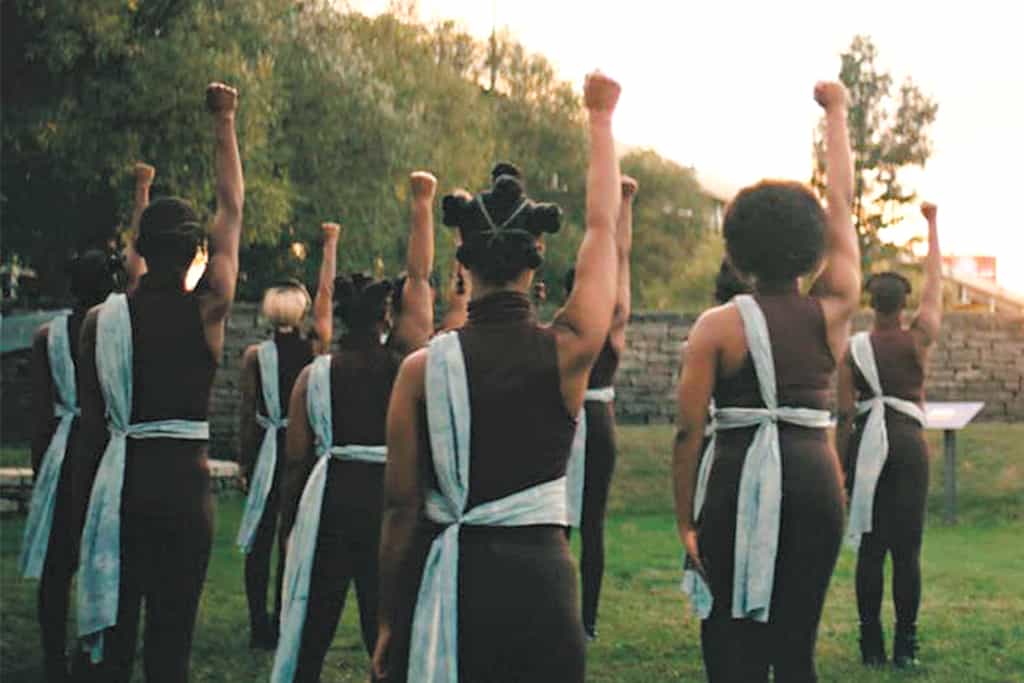For Black History Month, Awakenings launched a series of art projects created within the Toronto History Museums by Black, Indigenous and artists of colour, operating under the principles of anti-oppression, anti-colonialism, and anti-racism. “I was interested in exploring the hidden truths,” says Inayet, who spent six months combing through old texts and working closely with historians to uncover stories from the past that are missing from our museums.
Inayet then took the truths that she learned and gave them to artists to create from. “I wanted them to imagine what our world could look like from here,” she says. The result is a powerful assortment of artistic work that will have everyone reexamining our history, and asking why these stories were not readily available, or intentionally absent. “It makes you really think about what is held in reverence.”
Kitchen Concerts at the Inn, featuring Jully Black, Kardinal Offishall and other outstanding performers, is a music series celebrating life and honouring the story of Joshua Glover, a freedom seeker who escaped enslavement and jail in the United States and then lived and worked at Montgomery’s Inn.

Choreographed by Esie Mensah, A Revolution of Love is an incredibly powerful short film that follows a young Black woman as she grapples with the histories of her ancestors and the present-day violence ravaging her community, and begins to imagine what her future looks like through dance. Conceived by an internationally recognized Black creative team and featuring the words of Assata Shakur, this piece spotlights 15 women of varying shades as they come together to re-frame revolution in the name of love. In partnership with Soulpepper Theatre Company , the piece was filmed at Toronto’s Fort York National Historic Site, and shows the site in a way that has never been seen before.
“We’re not just doing documentaries, were taking this content and were commenting on it: if this is how it was, how does it relate to these times, and how do we build a brand new future knowing the mistakes that have taken place, and histories that have been erased?”says Inayet, who shares that the healing is not only in the exhibits themselves, but the coming together of artists to create them.”
The Awakenings program has received tremendous positive feedback, but Inayet shares that the comments that move her the most are the expressions of gratitude shared succinctly in one or two words: THIS or THANK YOU. Those simple yet poignant responses that have moved Inayet to tears. “It shows that we’ve been able to validate people’s emotions who may have felt that places in high power didn’t really care. That’s how history has been illustrated, it’s a colonial history. We’re changing all of that.”




 Follow Us On Instagram
Follow Us On Instagram
